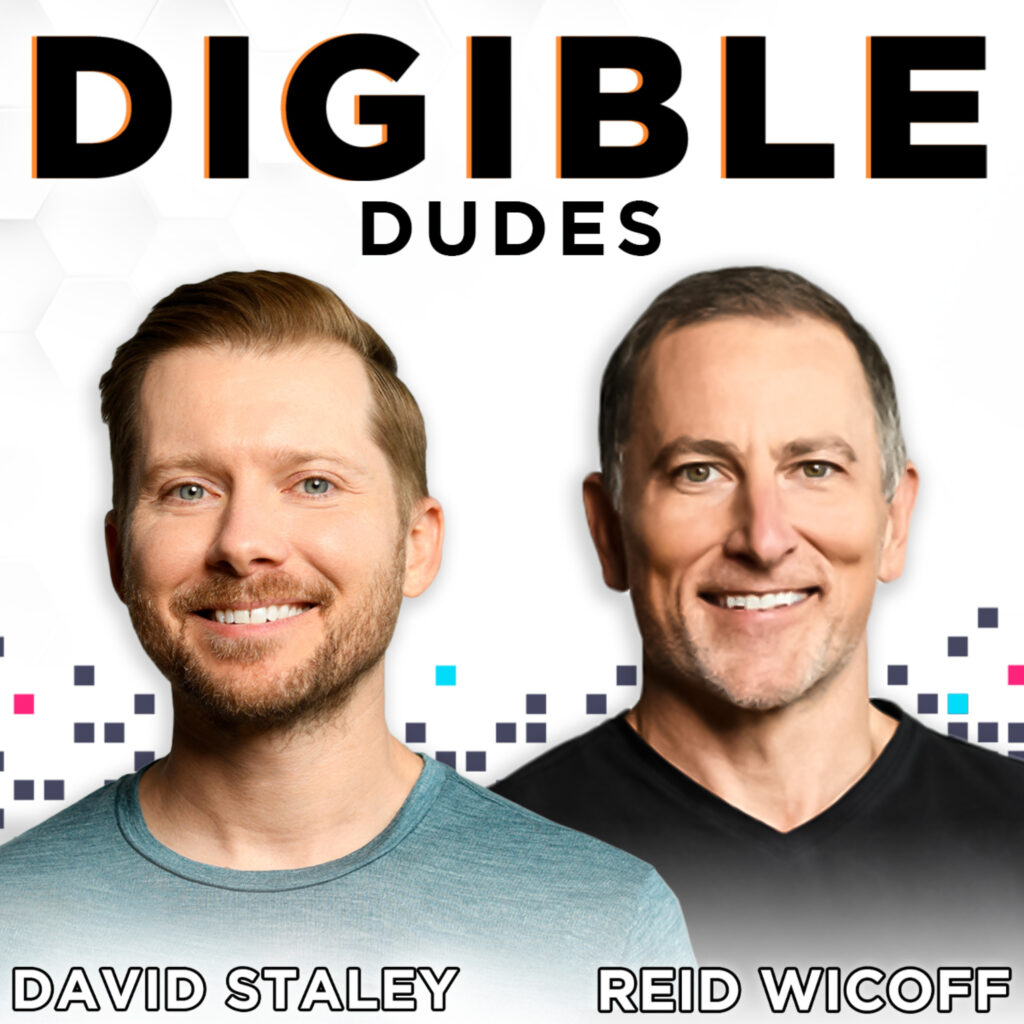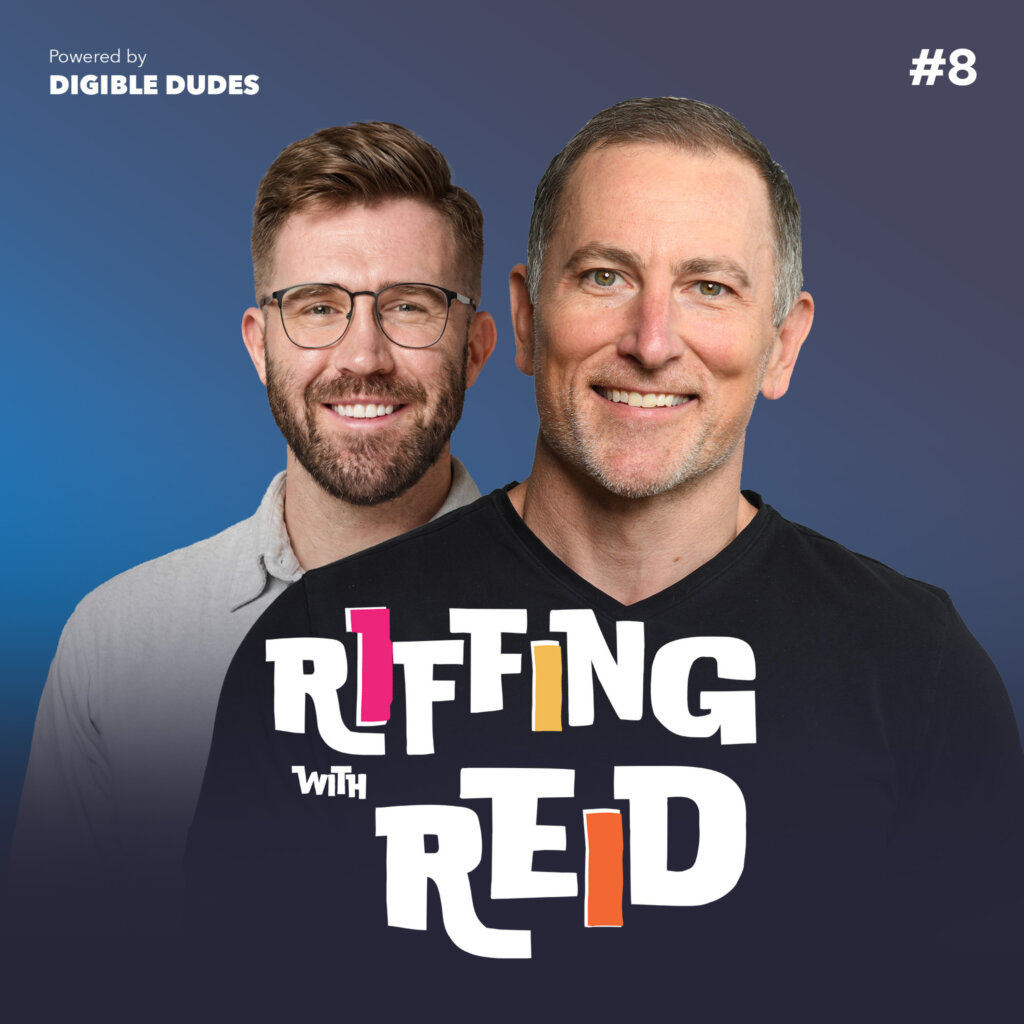The social media landscape is transforming, and multifamily marketers need to adapt quickly. Meta’s algorithmic changes in 2025 have sparked intense debate about the effectiveness of hashtags versus keywords in organic social media posts. As we navigate the shifting terrain, understanding the nuances between these two becomes crucial for developing a successful multifamily social media strategy.
The Great Divide: Keywords vs. Hashtags
The distinction between keywords and hashtags represents more than just formatting differences – it reflects two entirely different approaches to content discovery and audience engagement.
Keywords: Powering Searchable Content
Keywords refer to the specific words and phrases users type into social platforms and search engines when they’re actively searching for content or information. Prospective renters in the multifamily market are using platforms like Google to research neighborhoods or Instagram to explore apartment communities and amenities. Naturally weaving keywords into your captions, descriptions, and text overlays boosts your visibility beyond the feed.
Examples of effective keywords include:
- Apartments for rent near me
- Modern studio near Chicago
- Furnished short-term leases
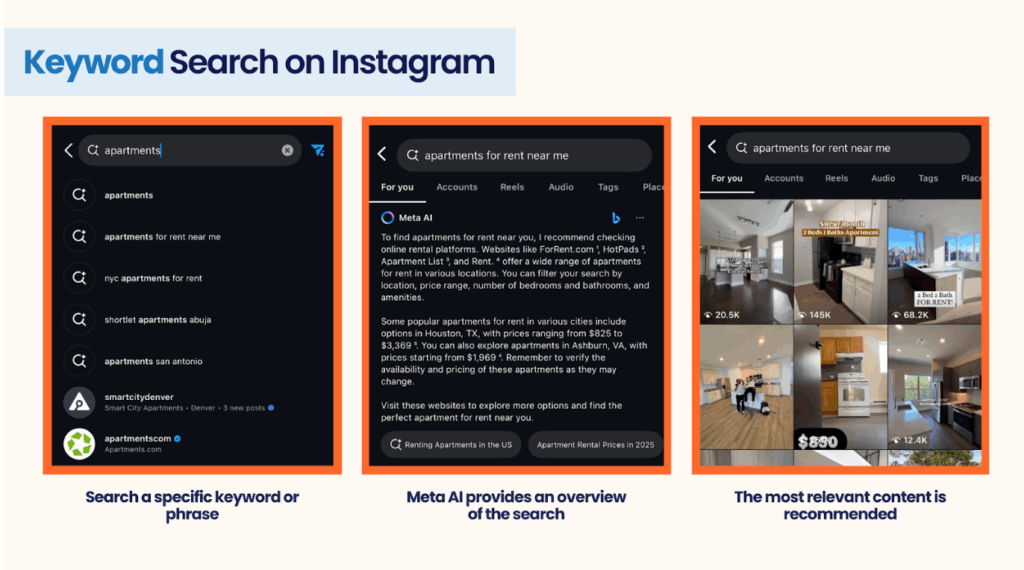
Think of keywords as an SEO compass. They guide potential renters straight to your content.
Hashtags: Fueling Social Discovery
Hashtags, on the other hand, are tools for discovery within social media platforms. They act as labels that group your content into organized, easy-to-find topics, connecting your posts to larger conversations and niche communities.
Commonly used hashtags include:
- #LuxuryRentals
- #PetFriendlyApartments
- #MinneapolisMN
When used intentionally, hashtags help create a connection between posts and build brand visibility within rental communities.
The fundamental difference comes down to how users discover content. Keywords align with active search behavior when someone is intentionally looking for specific information, like “pet-friendly apartments in Denver.”
Hashtags, meanwhile, support passive discovery – when users are browsing content grouped by topic or exploring communities through tags like #RentalLife or #CityLiving.
The Relevance Revolution in Organic Social Content
Today’s renters increasingly use Instagram and Facebook as primary research tools, searching for properties, neighborhoods, and lifestyle content with the same intent they once reserved for Google. This behavioral shift has profound implications for multifamily social media strategy.
Properties that optimize for searchable content position themselves at the intersection of intent and discovery. When a prospective resident searches for “best apartments near downtown Austin,” keyword-optimized content has a significantly higher chance of appearing in results than hashtag-dependent posts.
The integration of AI-powered recommendation systems has also diminished hashtag importance. Modern algorithms analyze content context, user behavior patterns, and engagement signals to determine distribution, making hashtag categorization less critical for reach optimization.
Meta’s algorithms now prioritize content that demonstrates clear value and engagement potential. Keywords help establish topical authority and relevance signals that hashtags alone cannot provide. A post describing “spacious one-bedroom apartments with in-unit laundry” carries more algorithmic weight than the same content relying solely on #OneBedroom #Laundry hashtags.
Moreover, keywords integrate seamlessly with voice search trends. As smart speakers and voice assistants become integral to daily life, optimizing for conversational, keyword-rich content ensures your multifamily properties remain discoverable across all search modalities.
From Relevance to Results: Instagram’s New Search Indexing
This growing emphasis on relevance isn’t just theoretical – it’s shaping the way platforms like Instagram surface content. Recent updates to Instagram’s search algorithm now index in-caption keywords, meaning what you write matters just as much as what you tag. Captions that use natural, descriptive language are now more likely to appear in user searches, even without a single hashtag.
Why this matters for multifamily:
- Posts with well-written, descriptive captions now have a better chance of surfacing when users search terms like “pet-friendly apartments in Denver.”
- Hashtags alone are no longer enough; the algorithm is prioritizing semantic relevance and caption context.
- It rewards clear, helpful, localized content – the kind your prospective renters are already looking for.
Pro tip: Think like your renter. What would they search for? Write captions that answer those questions naturally.
Meta’s Algorithm Priorities & What They Mean for Multifamily Marketing
Meta’s strategic direction over the next few years centers on several key initiatives, each of which carries major implications for how multifamily marketers approach social media. From AI-powered discovery to enhanced search functionality, the algorithm is evolving to reward content that’s relevant, valuable, and highly contextual, especially for service providers like rental communities.
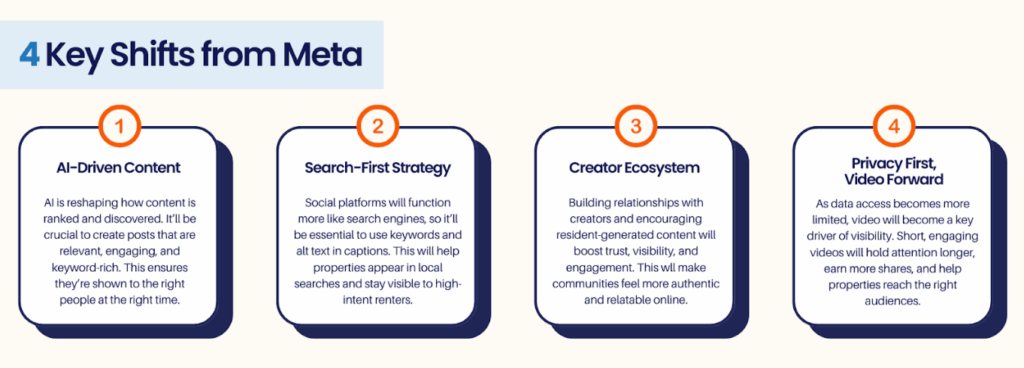
- AI-Driven Content
- The most significant shift is Meta’s investment in artificial intelligence. As algorithms become more advanced, they’ll prioritize content that’s contextually relevant, visually engaging, and aligned with user behavior. It’ll be crucial for content to be created with AI in mind: captions should include relevant keywords, and visuals should reflect lifestyle and community intent.
- Search-First Strategy for Local Discovery
- Social media platforms, like Instagram, are positioned as reliable search tools, particularly for lifestyle and location-based queries. Multifamily marketers will need to use strategic keywords in captions, alt text, and overlays to help their properties show up in hyper-local searches. This shift comes as no surprise, especially with Instagram’s recent confirmation that posts are now indexable by Google.
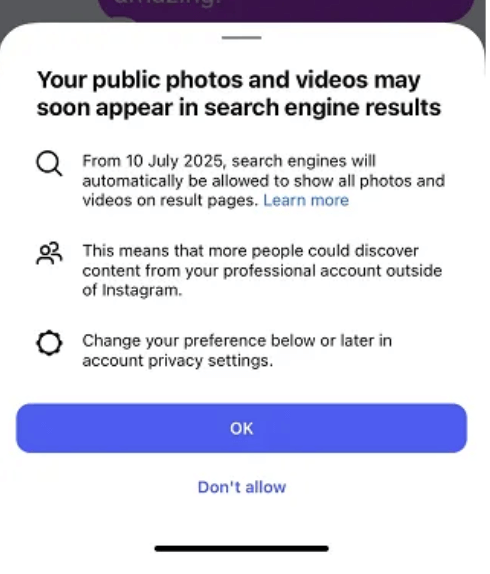
- A Creator-Led, Community-Driven Ecosystem
- The creator economy is continuing to grow. Content that consistently delivers value, authenticity, and relevance will gain more reach. When residents describe their experiences authentically, it makes content easier for platforms to understand and recommend.
- Organic Reach in a Privacy-First Future
- As user data becomes more protected and targeting options more limited, high-performing organic content, like videos, will be essential. Videos garner higher watch times, engagement, and shares that help with discoverability. Within the multifamily space, this creates an opportunity to support paid media efforts with videos that showcase amenities, resident life, and local highlights.
In short, the rules of the game have changed, and typical social media tactics of the past won’t cut it in this new era. Meta is rewarding content that’s smart, searchable, and genuinely useful. For multifamily marketers, that means it’s time to level up: not by working harder, but by working more strategically.
Your Roadmap to Social Media Content that Performs
Moving from a hashtag-heavy approach to a keyword-optimized content strategy isn’t just a trend – it’s a necessary evolution. As Facebook and Instagram become more search-driven and AI-powered, multifamily marketers must adapt how they create, write, and distribute content. This doesn’t mean overhauling everything overnight. Instead, it means making smart, sustainable changes that align with how renters actually search and engage online.
Below is an action plan on how Digible’s Organic Social team can support you for stronger performance with less effort:
- Develop a Strategic, Brand-Aligned Social Calendar
- Thoughtfully crafted content calendars align with leasing cycles, holidays, Fair Housing guidelines, and lifestyle trends, ensuring your property stays relevant and top of mind year-round.
- Create Optimized, Caption-Ready Content
- Captions are written to reflect your property’s unique tone, highlight key features, and include strategic keyword placement on both Instagram and Facebook.
- Prioritize Video Content to Boost Reach
- In 2025, Instagram’s reach is shaped by key metrics like average watch time, likes per reach, and sends per reach, according to Instagram Head Adam Mosseri. Video content performs best, as it holds attention longer and drives more shares, saves, and visibility.
- Turn UGC Into Searchable, Storytelling Content
- Repurpose user-generated content, like resident stories, as they naturally incorporate relevant keywords, boost community connection, and increase discoverability.
- Measure What Matters and Adjust with Purpose
- Post performance is monitored regularly using platform insights, allowing content to evolve based on what truly engages your audience.
If Your Content Isn’t Searchable, It’s Invisible
Multifamily marketers can no longer rely on hashtags and hope for the best. As platforms evolve into search-first engines, keyword-driven, value-rich content is what earns attention and action.
Whether you’re managing content in-house or looking for expert support, success comes from a balance of relevance, strategy, and adaptability. Properties’ on-site teams can start with small changes (like refining captions and encouraging authentic resident stories) while marketing partners like Digible can help scale efforts with smarter content planning, brand alignment, and performance insights.
Now’s the time to show up where renters are searching – not just where they’re scrolling.





